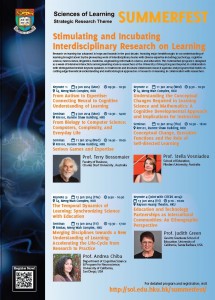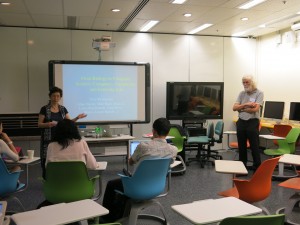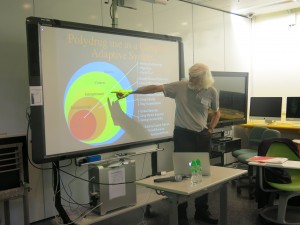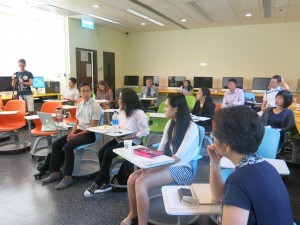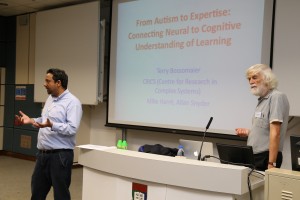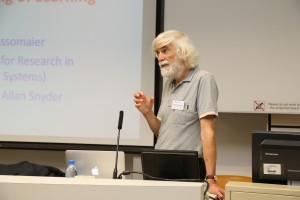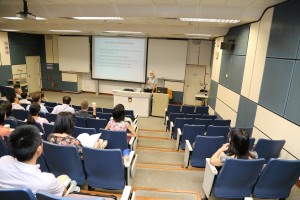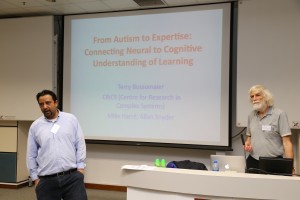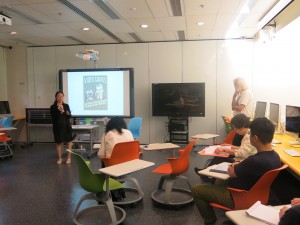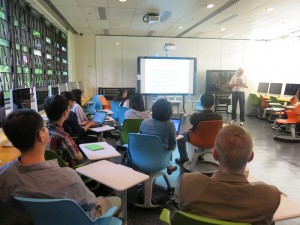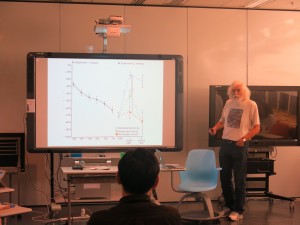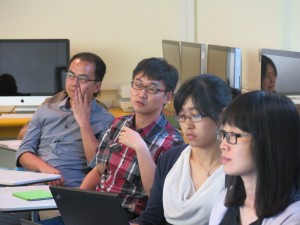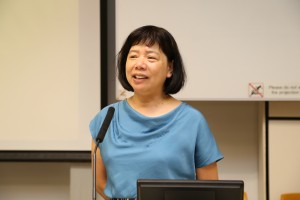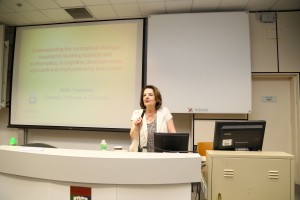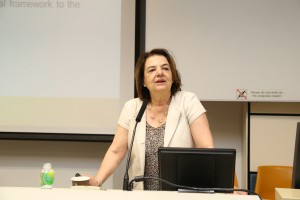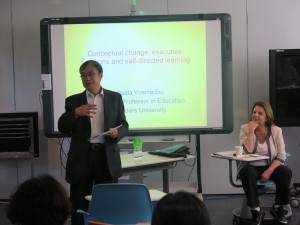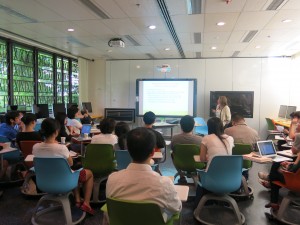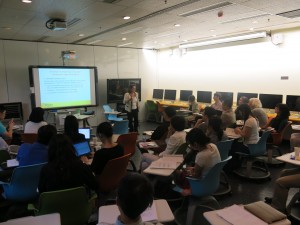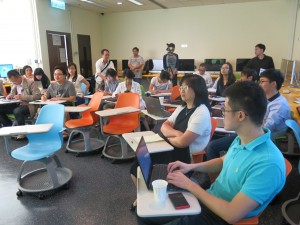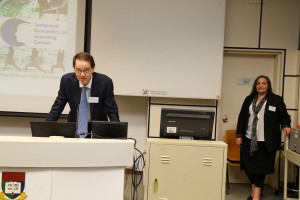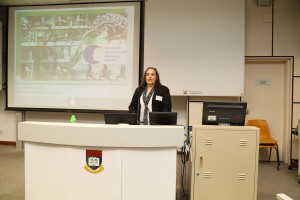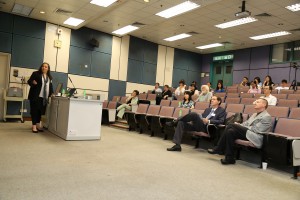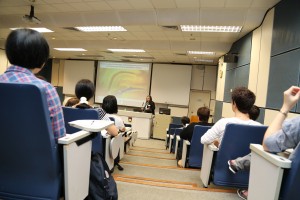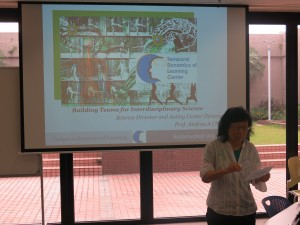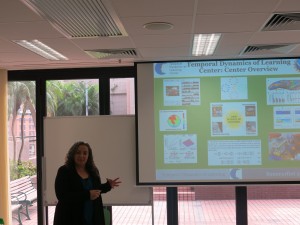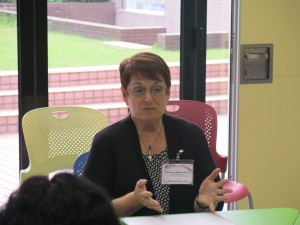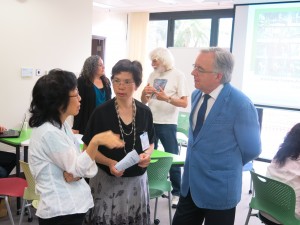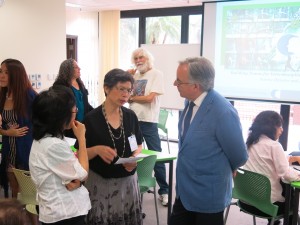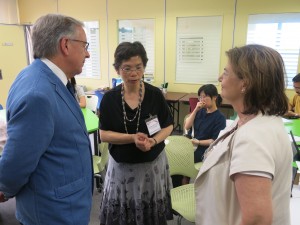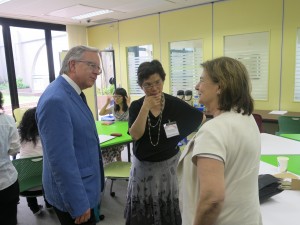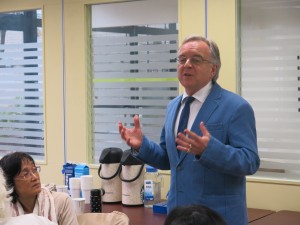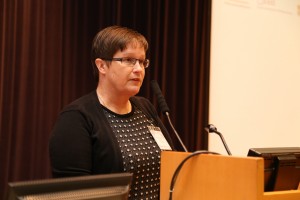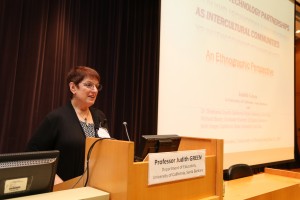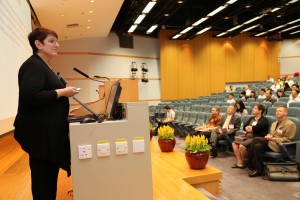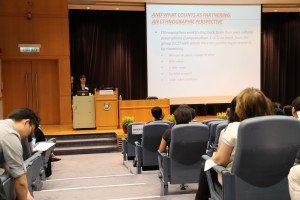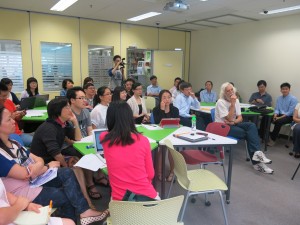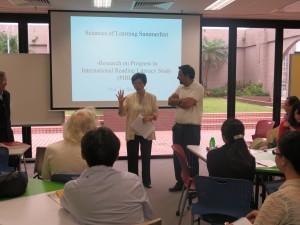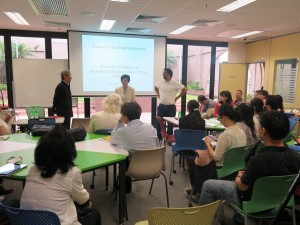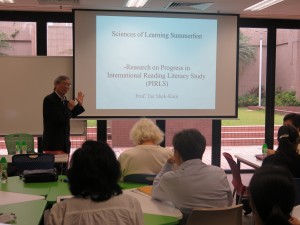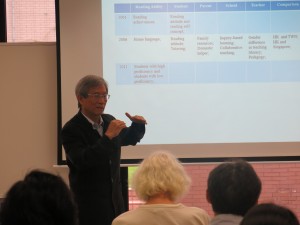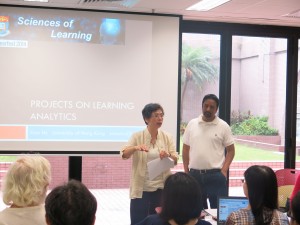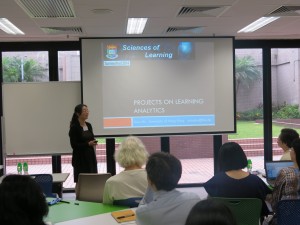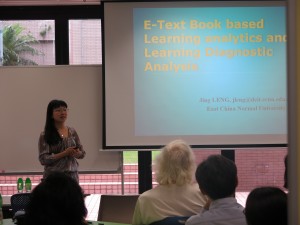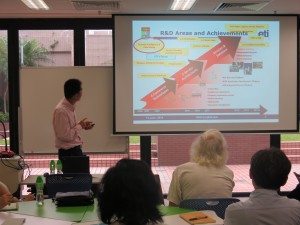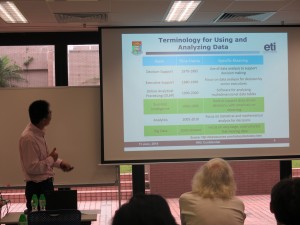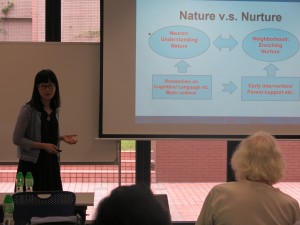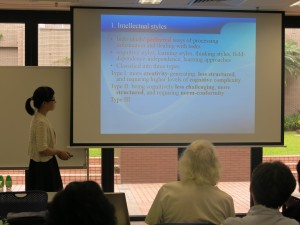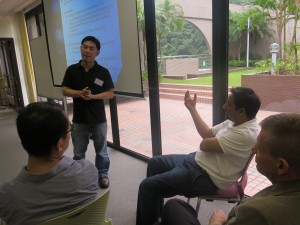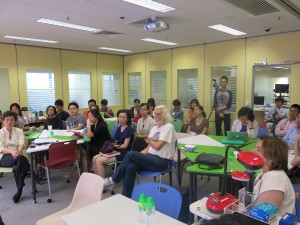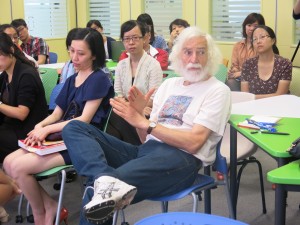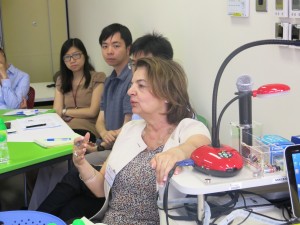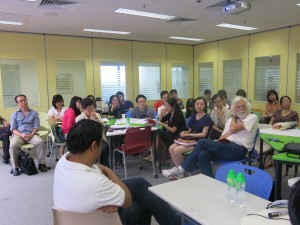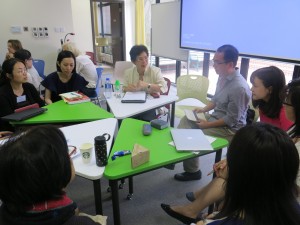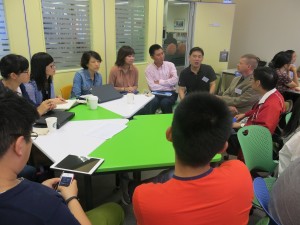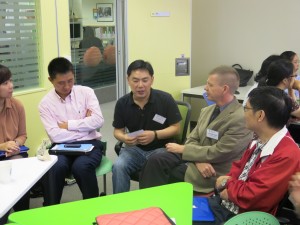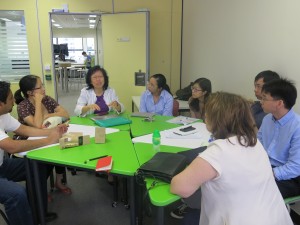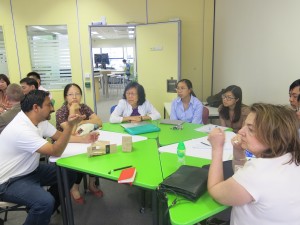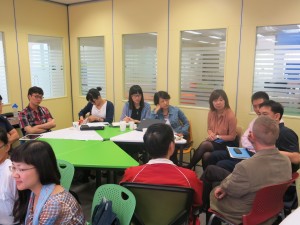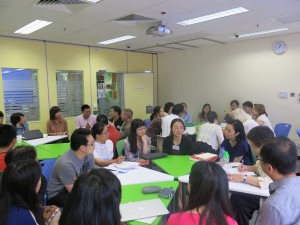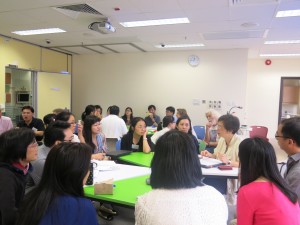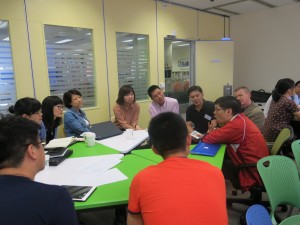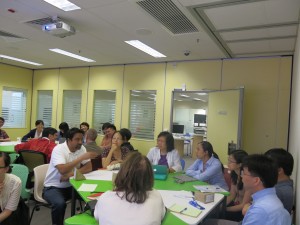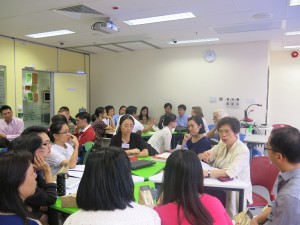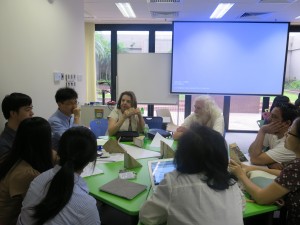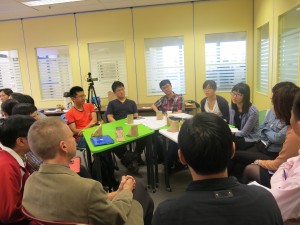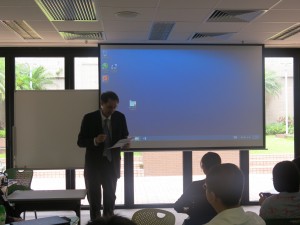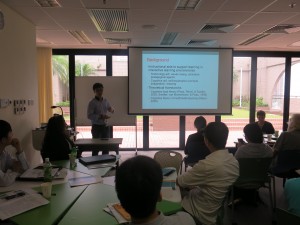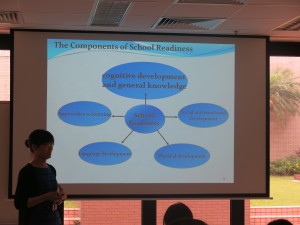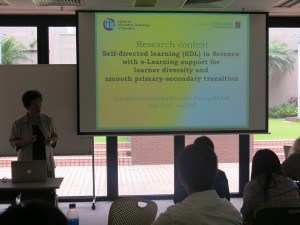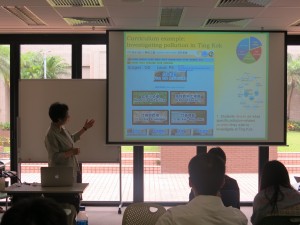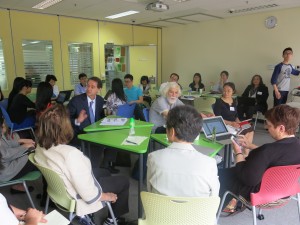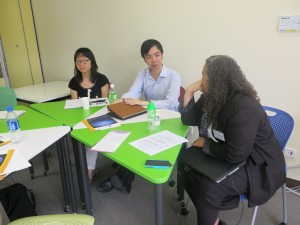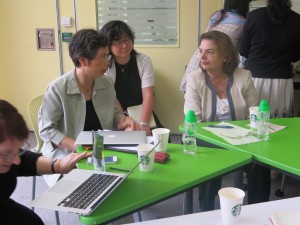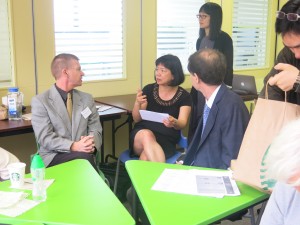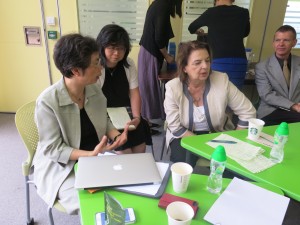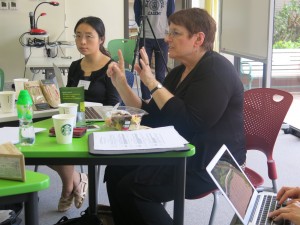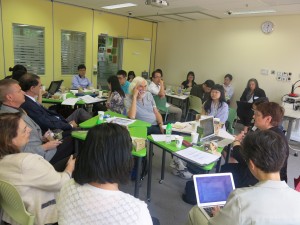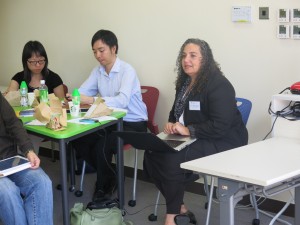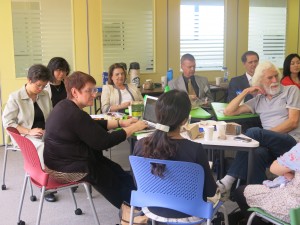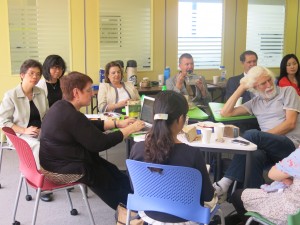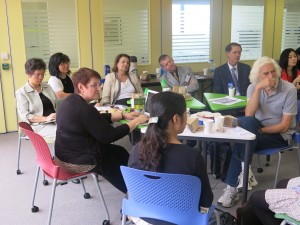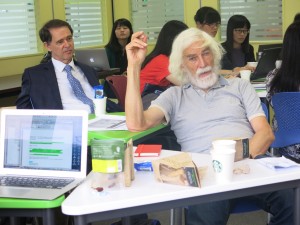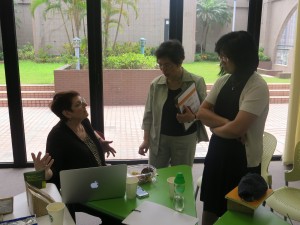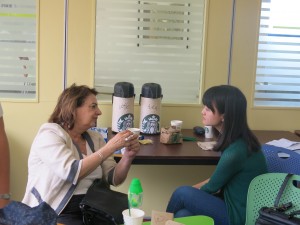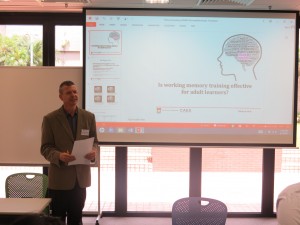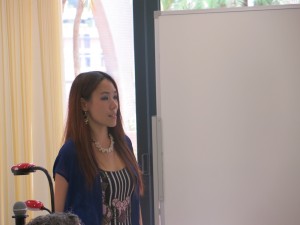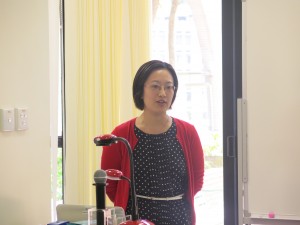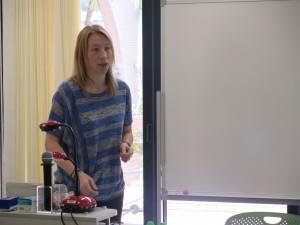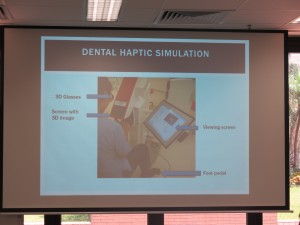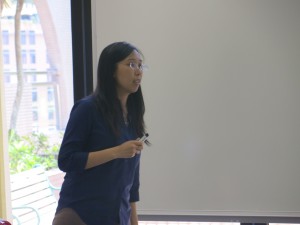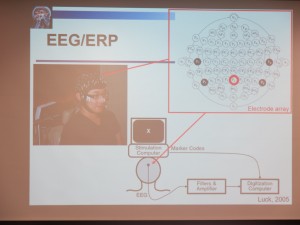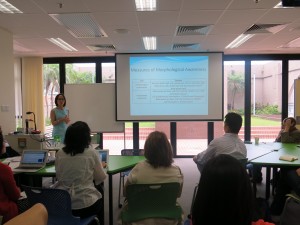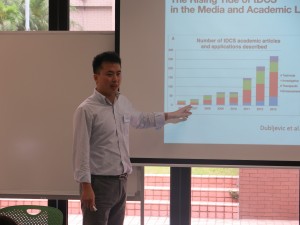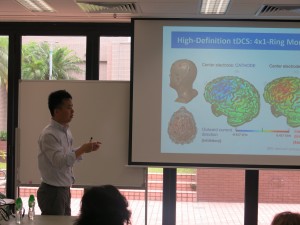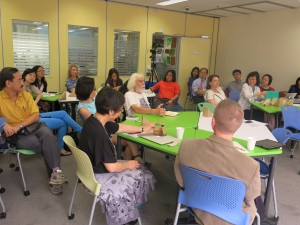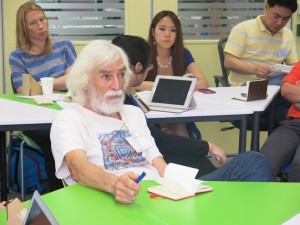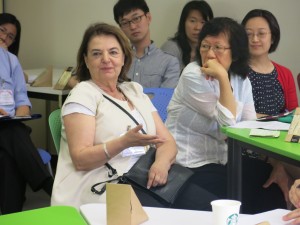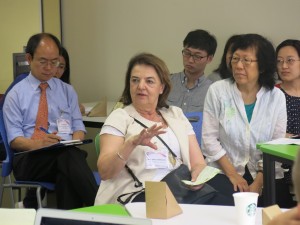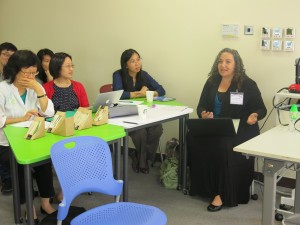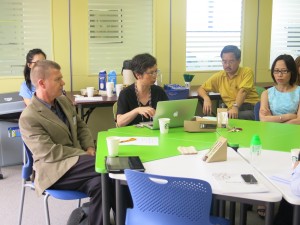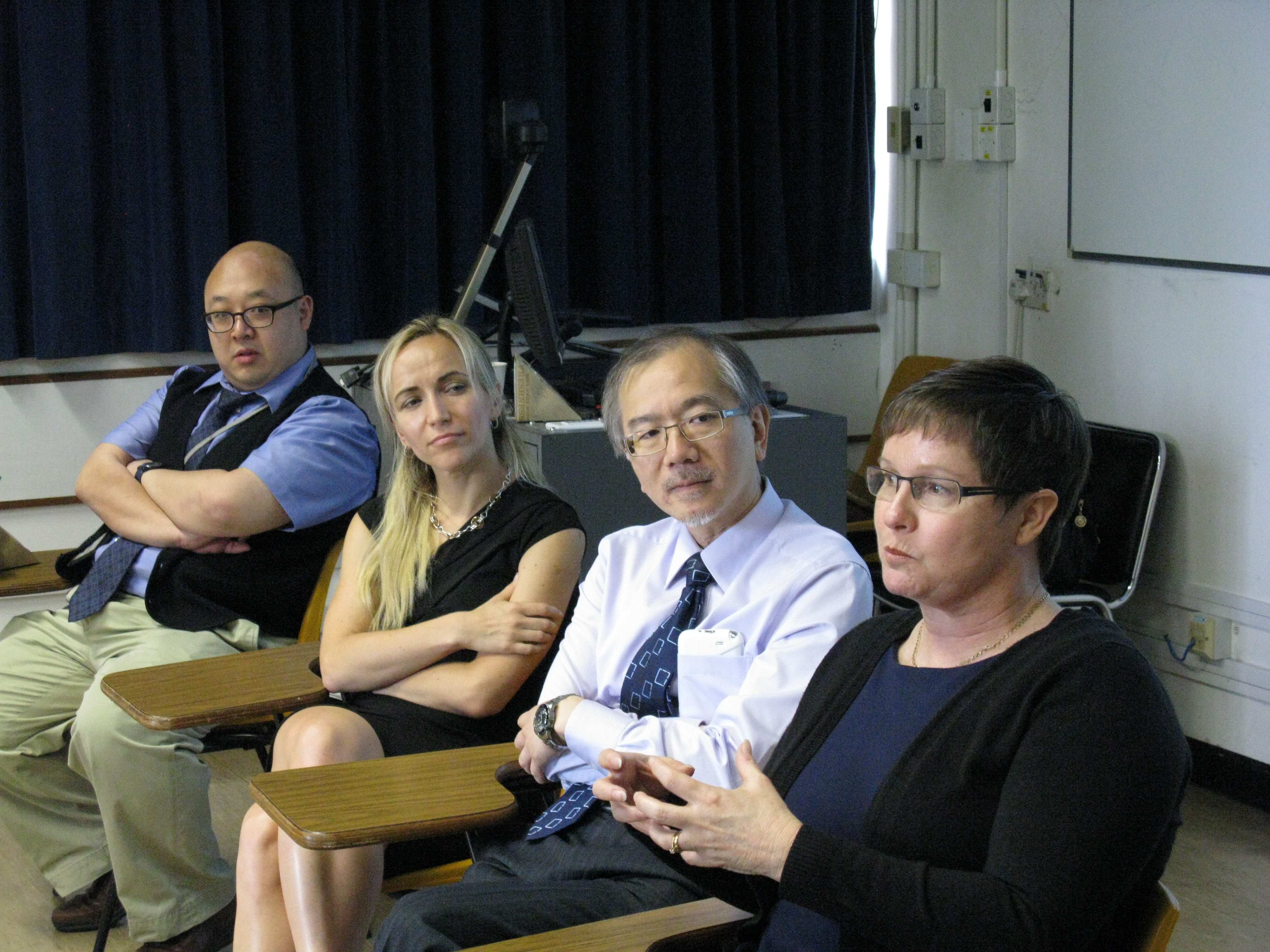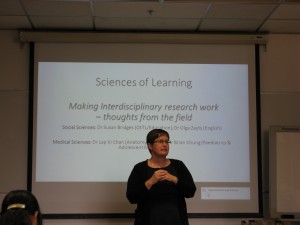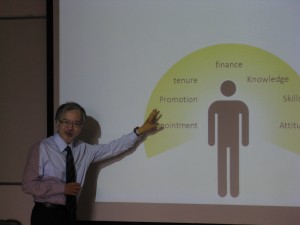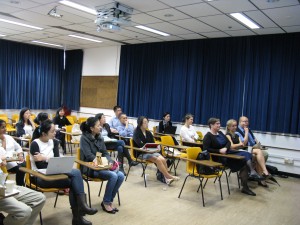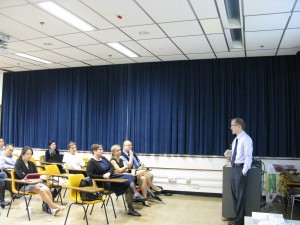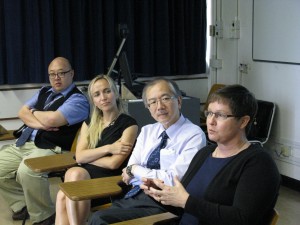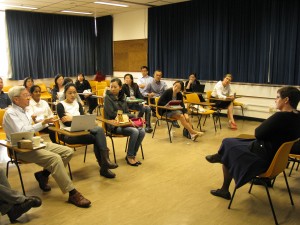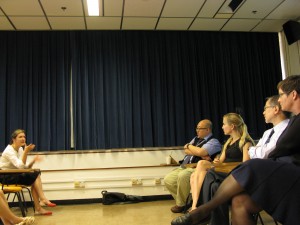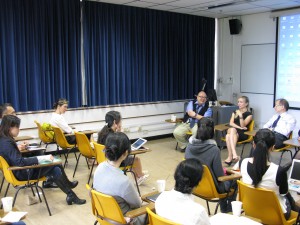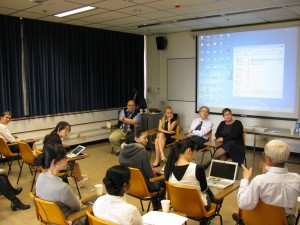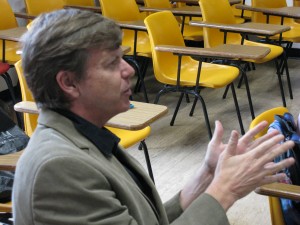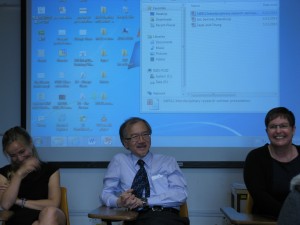Tag Archives: Interdisciplinary Research
Summerfest 2014
Stimulating and Incubating Interdisciplinary Research on Learning
Date: 9-13 June 2014
Venue: The University of Hong Kong
Research on learning has advanced in leaps and bounds in the past decade, featuring major breakthroughs in our understanding of learning brought about by the pioneering work of interdisciplinary teams with diverse expertise including psychology, cognitive science, neuroscience, linguistics, medicine, engineering, information science, and education. This Summerfest program is designed as a week of intensive interactions among learning science researchers at the University of Hong Kong and beyond, in collaboration with distinguished invited keynote speakers, to brainstorm and incubate collaborate research agendas and programs that builds on cutting edge theoretical understanding and methodological approaches of research on learning.
| Professor Chiba’s video is not available due to copyright concerns. | |
Program (as of 26 May 2014)
| 9 June 2014, Monday | |
|
9:30 – 10:30
|
Liaquat Hossain
|
|
12:30 – 14:00
|
Nancy Law
|
| 11 June 2014, Wednesday | |
|
9:30 – 10:30
|
Terry Au
|
|
11:00 – 13:00
|
Learning at Scale—connecting research on learning across different levels through statistical and computational methods
Liaquat Hossain & Nancy Law
|
|
16:30 – 18:00
|
Xiao Hu
|
| 12 June 2014, Thursday | |
|
9:30 – 10:30
|
Brad McPherson
|
|
11:00 – 13:00
|
Supporting and assessing conceptual and metacognitive learning —learning and assessment design, learning technology, learning environment and learning analytics
Terry Au & Brad McPherson
|
|
16:30 – 18:00
|
Frederick Leung
|
| 13 June 2014, Friday | |
|
9:10 – 10:00
Rayson Huang Theatre (joint with CITERS 2014)
|
Susan Bridges
|
|
11:00 – 13:00
|
Language and motor learning—neural plasticity, implicit learning, bilingual learning
Brendan Weekes & Frank Zhu
|
|
15:30 – 17:00
|
Carol Chan
|
Bio and Abstract
 Terry Bossomaier is the Strategic Research Professor in the Faculty of Business at Charles Sturt University. He founded the Centre for Research in Complex Systems (CRiCS) at Charles Sturt University and has organised biennial complex systems research summer schools since 1998. His research interests currently focus on the agent based modelling of socio economics systems and artificial intelligence for games. He has published numerous articles in a range of fields from biological vision to high performance and parallel computing. He is a co-author/editor of five books and is just completing a book on information flow in complex systems.
Terry Bossomaier is the Strategic Research Professor in the Faculty of Business at Charles Sturt University. He founded the Centre for Research in Complex Systems (CRiCS) at Charles Sturt University and has organised biennial complex systems research summer schools since 1998. His research interests currently focus on the agent based modelling of socio economics systems and artificial intelligence for games. He has published numerous articles in a range of fields from biological vision to high performance and parallel computing. He is a co-author/editor of five books and is just completing a book on information flow in complex systems.
From Biology to Computer Science: Computers, Complexity and Everyday Life
Complex systems are all about us, from the ecology and environment to fast changing social dynamics. This talk will trace the history of complex systems, from the formation of the Santa Fe institute, through to the exciting work now going on in social networks. We will describe some canonical systems, such as cellular automata (Game of Life), and how they can be applied to real-world systems. The measurement of complexity is still a somewhat open question, and we will introduce methods of measurement, and explain the idea of computation at the edge of chaos.
From Autism to Expertise: Connecting Neural to Cognitive Understanding of Learning
In work stretching back a decade, evidence has been growing that not only is human knowledge hierarchical, but that dynamic inhibition blocks access to lower level detail, leaving only the global picture. Brain injury, pathology (such as strokes), conditions such as autism, and, now experimental procedures such as trans-cranial magnetic stimulation, allow access to this lower level detail. Sometimes access to this detail can enhance creativity or reveal better solutions to difficult problems.
Human expertise relies heavily on elaborate concept structures, but in some cases can lead to people being blinded by their expertise, in, for example, the Einstellung Effect. Much of our understanding of expertise has come from games such as Chess, but this talk will focus on Go, an equally difficult game for people, but a much more difficult game for computers. By analyzing large number of games online, some surprising characteristics of human cognition have emerged. The appreciation of global structures seems to occur at quite an advanced level, and that distinct transitions appear in the acquisition of expertise. Although the existence of such transitions has been conjectured, obtaining quantitative data of the kind we present has been made possible only through the availability of large numbers of decisions online. The talk will conclude with the implications for other games and the possible education opportunities.
Serious Games and Expertise
“Truth is lived, not taught.” The Glass Bead Game (Hermann Hesse (1943).
The commercial game industry has grown enormously, alongside increases in computing power over the last few decades. By a variety of metrics it now surpasses the movie industry. Where at first games might have been developed from successful movies, now the reverse commonly occurs (Tomb Raider, Final Fantasty). The development cost of games for game consoles, such as the Sony Playstation, which have traditionally captured a large slice of the market, has also risen. A top, so-called AAA title can cost upwards of $20million to produce, with aggregate teams of a hundred people or more. In September 2013, Grand Theft Auto 5 was launched. It was the most expensive game ever, at £170 million. But in the first day of sales, it set another record, boasting £ 0.5 billion on its first day, higher than any movie or game in history.
Serious games attempt to harness this massive interest in games for entertainment for educational or training purposes. We shall look at the various objectives and, the evidence, if any, of how well serious games go towards achieving them. This presentation asks whether serious games work in delivering education and training, whether they are effective in their use of time, and, by implication whether cost effective. It will examine the broader context of lifelong expertise and how it may be assessed and monitored.
 Stella Vosniadou is Strategic Professor in Education at the Flinders University of South Australia. In previous appointments she worked as a Professor of Cognitive Psychology at the University of Athens, and as a Senior Research Scientist at the Center for the Study of Reading at the University of Illinois in Urbana-Champaign. Professor Vosniadou is well known for her research on the conceptual changes that take place in the learning of science and mathematics, for which she has received the 2011 Distinguished International Contributions to Child Development Research Award from the Society for Research in Child Development. She is the editor amongst others, of the International Handbook of Research on Conceptual Change (2nd edition, 2013; Routledge). Professor Vosniadou is a fellow of the International Academy of Education and of the American Educational Research Association and has served as past president of the European Association for Research on Learning and Instruction and of the Cognitive Science Society.
Stella Vosniadou is Strategic Professor in Education at the Flinders University of South Australia. In previous appointments she worked as a Professor of Cognitive Psychology at the University of Athens, and as a Senior Research Scientist at the Center for the Study of Reading at the University of Illinois in Urbana-Champaign. Professor Vosniadou is well known for her research on the conceptual changes that take place in the learning of science and mathematics, for which she has received the 2011 Distinguished International Contributions to Child Development Research Award from the Society for Research in Child Development. She is the editor amongst others, of the International Handbook of Research on Conceptual Change (2nd edition, 2013; Routledge). Professor Vosniadou is a fellow of the International Academy of Education and of the American Educational Research Association and has served as past president of the European Association for Research on Learning and Instruction and of the Cognitive Science Society.
Understanding the conceptual changes required in learning science and mathematics: A cognitive developmental approach and implications for instruction
I will describe my research over the last years designed to describe and explain students’ difficulties in understanding concepts in science and mathematics. More specifically, I will argue that by the time formal instruction starts children have already constructed several relatively coherent explanatory systems or ‘framework theories,’ which are based on their everyday experiences in the context of lay culture. Many scientific and mathematical concepts are however organized within different explanatory theories and their understanding requires major changes in students’ conceptual structures. These conceptual changes are not sudden and stage-like, but happen slowly, through the gradual assimilation of the new information into the initial conceptual structures, creating misconceptions. I will also argue that initial systems of thought are not replaced by more advanced ones but continue to exist and to inhibit access to scientific concepts. The implications of the above for a theory of cognitive development and for learning and instruction will be discussed.
Conceptual change, executive functions and the role of self-directed learning
I will argue that the considerable conceptual changes that occur during cognitive development particularly after exposure to science and mathematics instruction implicate executive function (EF) abilities. This hypothesis was examined by looking at the relationships between two computer-based reaction time science and mathematics conceptual change tasks and two Stroop-like inhibition and shifting EF tasks in a group of elementary school students. The results showed high correlations between performance in the conceptual change tasks and the EF tasks indicating that EF abilities as implicated in conceptual change processes. I will end the seminar with a discussion of the relationship between EF and self-directed learning.
 Andrea Chiba is an Associate Professor in the Department of Cognitive Science and in the Program for Neuroscience at the University of California, San Diego. She is also Acting Director and the founding Science Director of the Temporal Dynamics of Learning Center, an NSF Science of Learning Center. The Center research is focused on the importance of time and timing in various aspects of learning, from the level of the synapse to social interactions. The goal of the Center is not only to understand learning, but also to translate this understanding to the practice of educating. Chiba is involved in many Center projects that allow cross-species comparisons of learning and memory, bridging from rodent to human. The Chiba Laboratory is focused on gaining an understanding of the neural systems and principles underlying aspects of learning, memory, affect, and attention, with an emphasis on neural plasticity. Her group’s work is highly interdisciplinary, using a variety of neurobiological, neurochemical, neurophysiology, computational, and behavioral techniques.
Andrea Chiba is an Associate Professor in the Department of Cognitive Science and in the Program for Neuroscience at the University of California, San Diego. She is also Acting Director and the founding Science Director of the Temporal Dynamics of Learning Center, an NSF Science of Learning Center. The Center research is focused on the importance of time and timing in various aspects of learning, from the level of the synapse to social interactions. The goal of the Center is not only to understand learning, but also to translate this understanding to the practice of educating. Chiba is involved in many Center projects that allow cross-species comparisons of learning and memory, bridging from rodent to human. The Chiba Laboratory is focused on gaining an understanding of the neural systems and principles underlying aspects of learning, memory, affect, and attention, with an emphasis on neural plasticity. Her group’s work is highly interdisciplinary, using a variety of neurobiological, neurochemical, neurophysiology, computational, and behavioral techniques.
The Temporal Dynamics of Learning: Synchronizing Science with Education
Timing is critical for learning at every level, from learning the precise temporal patterns of speech sounds, to learning appropriate sequences of movements, to optimal training and instructional schedules for learning, to interpreting the streams of social signals that reinforce learning in the classroom. Moreover, a decade of neuroscience research demonstrates that aspects of the temporal dynamics of processes within the brain can predict learning and performance. Scaffolding research from the level of the single neuron to the dynamics of cultural activities has revealed the importance of considering timing as a critical feature of cognition. We believe that by investigating the temporal dynamics of learning we can promote the capacity of children to learn, while aligning the environment to promote learning.
Merging disciplines towards a new understanding of learning: Accelerating the Life-Cycle from Research to Practice.
Gaining a deep understanding of learning at multiple levels of analysis requires a convergence of the techniques and knowledge of several disciplines. Clear communication and a willingness to address shared questions is central to creating synergistic research teams that begin to uncover basic principles of learning from the level of neurons to the reconstruction of learning principles in synthetic creatures. Translating this research to practice, however, is a larger task that will require a community approach, due to the variability inherent in local and global cultures. Creative efforts in further situating science in the community may be one step towards advancing the scientific process and examining the resilience of our theories in the real world.
Judith Green is Professor of Education and Director of the Center of Literacy & Inquiry in Networking Communities (LINC) in the Gevirtz Graduate School of Education, University of California, Santa Barbara. She is co-founder of the Santa Barbara Classroom Discourse Group, an ethnographic research collaborative in which teachers, university faculty, and graduate students engage in interactional ethnographic studies of knowledge construction and community development in classrooms and technology-enabled contexts. Her published research explores issues of epistemology related to collecting, archiving, searching and analyzing video records within ethnographic archives. One area of her research has explored unanticipated impact of policy on opportunities for learning and on identity construction for both the collective and the individual in complex educational settings in and out of schools. The most recent area of her research is exploring how inter-professional and interdisciplinary groups work to develop technology-enabled systems and educational programs that support and constrain new directions for instructing, learning and accessing new areas of knowledge in higher education courses. Her research on the social construction of knowledge, within and across disciplines and educational settings, and on ethnography and discourse as epistemological perspectives has been published in major research handbooks and journals. She served as editor of the Handbook of Complementary Methods in Education in Education Research, Review of Research in Education, and Reading Research Quarterly. She is a Fellow of the American Educational Research Association, American Anthropology Association, National Conference for Research in Language and Literacy, and was elected to the Reading Hall of Fame.
Education and Technology Partnerships as Intercultural Communities: An Ethnographic Perspective
This talk will draw on two ethnographic cases in which teams from different disciplines and institutional settings that were brought together to support the building of technology enabled educational opportunities for learning. Each case will make visible the how and in what ways an ethnographic epistemology made visible not lonely how the teams were assembled but also the interactional and intercultural nature of the work of members of each team that supported, and at times constrain, the design, development, and implementation of innovative technology-enabled projects. The goal in drawing on these two different cases is to make visible a conceptually driven approach to uncovering and understanding the complex and often challenging and dynamic dialogic work of inter-professional, interdisciplinary, and inter-institutional project teams.
The first case, Two Sides of the Interface, makes visible the intercultural learning that resulted from a partnership between teachers and a team building digital archive and its interface that supported by the educational work of teachers and the development work of the team building the digital archive and interface. The second case, The Role of Ethnography in Complex Technology Enabled Education Partnerships, makes visible roles and relationships that were developed to construct an award-winning program that engaged 4000 secondary and post secondary students, in 170 sites in 44 of the 58 counties of California in learning ways of becoming active readers, writers and mathematicians. Through these case studies, I make visible how an Interactional Ethnographic perspective provides a conceptual approach to both research and project development.
Research Ideas Incubation Workshop 1:
Learning at Scale—connecting research on learning across different levels through statistical and computational methods
Research Ideas Incubation Workshop 2:
Supporting and assessing conceptual and metacognitive learning —learning and assessment design, learning technology, learning environment and learning analytics
Research Ideas Incubation Workshop 3:
Language and motor learning—neural plasticity, implicit learning, bilingual learning
Making interdisciplinary research work – thoughts from the field
Date: May 12th, 2014.
Time: 12:00-14:00
Venue: Rumme Shaw Building 205, The University of Hong Kong
Speakers: Dr Susan Bridges, Dr Lap Ki Chan, Dr Brian Chung and Dr Olga Zayts
In this interactive seminar, panel members from Social Sciences and Medical Sciences will reflect upon how we have drawn on cross-disciplinary synergies to conduct General Research Fund (GRF) and other funded interdisciplinary studies. We shall explore the effects upon the research process of working across paradigmatic boundaries – from team forming to grant writing and project data collection, analyses and dissemination. Importantly for those wishing to undertake interdisciplinary studies in the future, we will discuss the academic benefits of interdisciplinary work in our research careers.
All are welcome!




